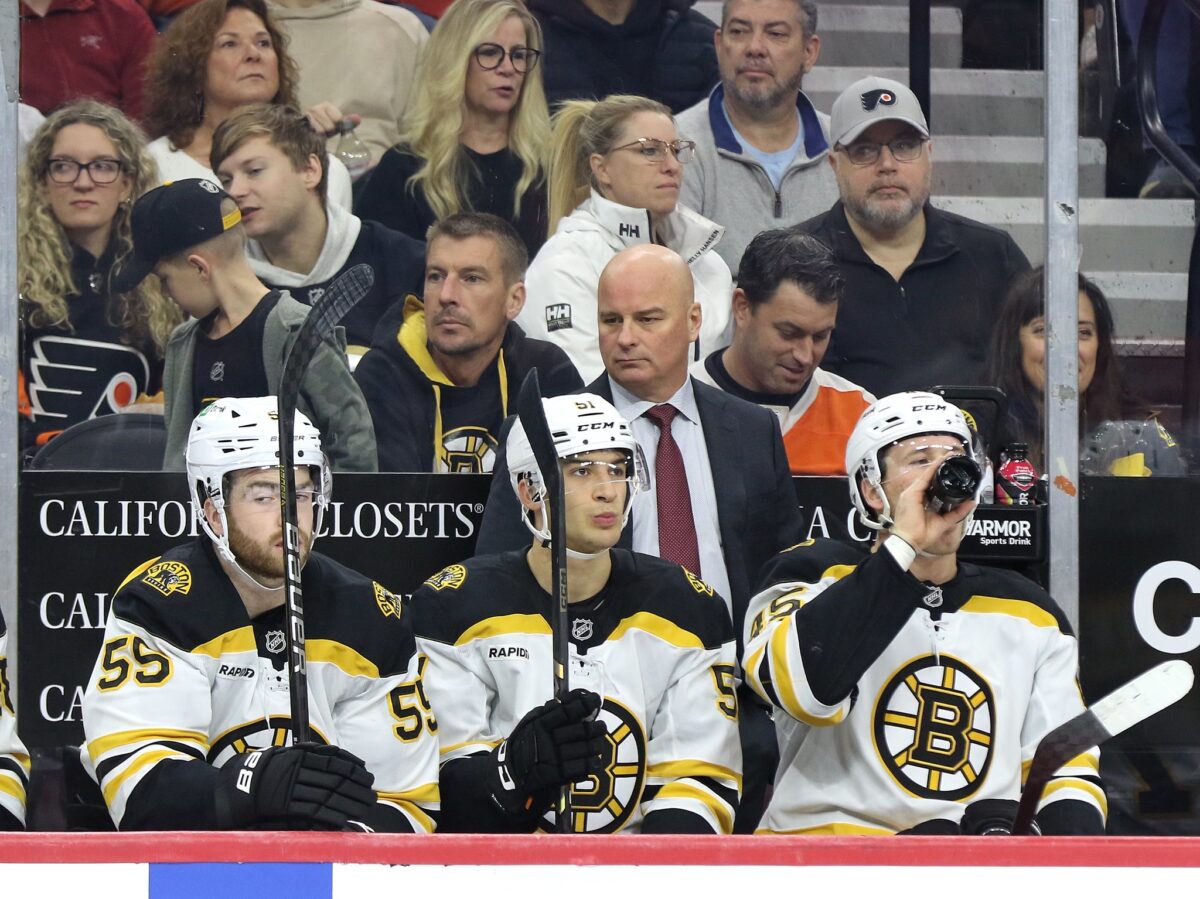In recent years, physical teams have often seemed to have the upper hand in the Stanley Cup Playoffs, where the grueling nature of extended series favors toughness over pure speed and skill. While there’s some truth to that, it misses an important point: the best physical players also bring skill and versatility to the ice—they’re not one-dimensional. The best teams strike a balance between the two. For the Boston Bruins, a team built with size and strength from top to bottom, that balance has been hard to find. Their early struggles in the 2024-25 season stem from their top players underperforming, but their problems go deeper. The call-up of Jeffrey Viel from Providence on Monday is a clear sign of that.
Before diving into why the Viel call-up indicates a bigger issue, it’s important to understand who Viel is as a player. The 27-year-old from Rimouski, Quebec, has always played with an edge. During his QMJHL career, Viel posted three consecutive 30-goal seasons, consistently hovering around a point-per-game pace after a modest rookie year. His offensive output, however, also came alongside substantial penalty minutes that saw him take 121, 132, 117, and 127 in his four junior seasons.
Though Viel would find decent success offensively in the AHL when joining the professional ranks, it was more of the same as far as penalty minutes. In the AHL, he’s taken a total of 579 penalty minutes in 295 games, which averages out to just under two penalty minutes per game played. In his brief time in the NHL, Viel has recorded three goals, five points and 139 penalty minutes in 49 games, good for 2.83 penalty minutes per game.
Why Viel’s Call-Up Raises Questions
This isn’t meant to discredit Viel’s role. He is an energy player who brings a physical presence to the ice. The issue is that the Bruins felt the need to add another player in the ilk of Viel even though their roster features a multitude of big-brooding bodies. Even with Mark Kastelic sidelined by a lower-body injury sustained against the St. Louis Blues on Saturday, the Bruins should have enough internal options to fill his role already in the lineup.

What’s puzzling is that, instead of addressing their offensive struggles, the Bruins opted to bring up Viel. The team has struggled not just to score consistently but even to generate regular shot attempts. This move just feels strange given that players like Matt Poitras and Fabian Lysell remain in Providence, despite their potential to inject creativity and offense into a lineup desperate for a spark.
What This Says About the Bruins
If the Bruins believe their biggest issue is energy or physicality, calling up a 27-year-old with 49 career NHL games isn’t the answer. This decision suggests deeper problems. Whether it’s the roster wasn’t assembled correctly, the players aren’t playing as expected, the coaching staff’s message isn’t landing or it’s some combination of the three, something has to give.
It’s clear to anyone watching the Bruins this season that their struggles aren’t limited to one area. The issues go beyond goaltending, offensive inefficiency, defensive lapses, or special-teams woes. What the Bruins lack most is consistency—and that inconsistency is showing up in every facet of their game.
The decisions to keep Lysell out of NHL action and demote Poitras adds another layer to the Bruins’ struggles. While the team may not think Lysell is NHL-ready, it’s becoming increasingly difficult to justify his absence as the team continues to sputter offensively. Some may even argue that Lysell isn’t being given the right linemates in Providence to succeed—a valid concern, but a discussion for another time.
Related: Bruins Have to Address Lack of Execution on the Power Play
Poitras’ demotion is even harder to understand. While his NHL stint wasn’t perfect, he consistently brought energy and creativity to a team that has often looked lifeless at even strength. Removing one of the few players who showed flashes of promise feels counterproductive, especially as the Bruins continue to search for solutions. The players who should be leading the charge need to do so by example, but there also appears to be a disconnect between what the coaching staff views as the issue and what’s actually happening on the ice.
Though the Bruins are tied with the Tampa Bay Lightning for points with 19 apiece, the Bruins have played three fewer games than their Atlantic Division foes. The team is lucky that their efforts have been enough to keep them within a Wild Card spot and striking range of the rest of the Atlantic, sitting just six points out of first place in the division even after this incredibly disappointing start. A scarier thought for the Bruins, however, is that they are also just six points out of last place in the NHL as a whole.
When the Bruins entered this season, they didn’t intend on being a middle-of-the-pack team with inconsistent results throughout the year. Instead, this team was built with an eye towards Stanley Cup contention. With over 75% of the season left to play, there’s still time to turn things around. Points in October and November matter just as much as those in March and April, however, and the Bruins can’t afford to keep letting these opportunities slip away.